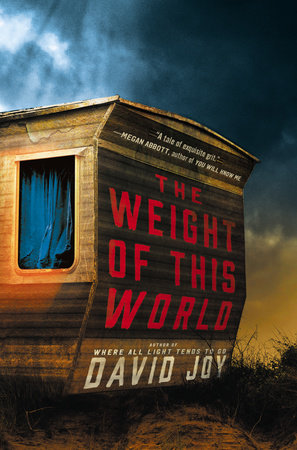Where are we going, you'll be asking Phillip Lewis. Where are you taking your readers on this meandering journey through an isolated backwater?
THE BARROWFIELDS is a coming of age tale, relating the awakening of Henry Aster who lives in a bizarre setting that feels a bit Flannery O'Connor-like. There is humour in Mr. Lewis' telling, but a bit of a chuckle is not enough to keep a reader enthralled. The Aster family is dysfunctional in a Southern Gothic sort of way, the father a hard-drinking lawyer with a burning desire to be a writer. Henry is the product of a would-be novelist's attempt to create a writer in his son, and there are more than enough references to obscure literary classics to make the average reader feel as if he or she has fallen into a lecture.
We are dragged into MFA-land as the story progresses, with Henry the university student discussing the word count on various fiction genres, and you the reader realize that Mr. Lewis is perhaps more of a short-story writer than a novelist. His prose is extremely pretty, but his ability to tell a coherent story is not fully developed. His attention to his personal craft is fluff that fills space but does not move the narrative.
The novel wanders in a way that had me skimming, in search of conflict or a plot point to cling to. The novel's premise is intriguing, but Henry gazes deeply into his navel as he ponders his failure to look after his younger sister as promised after his father leaves the family. Like so many recent works of fiction, the protagonist does not speak to the wider world or the human condition, but focuses quite firmly on a single individual with middle class problems.
Pretty prose does not a novel make. This one is worth a glance for the attractive sentences, but is difficult to finish because there isn't much substance behind the facade.
The review copy was provided by Penguin Random House. Thank you.
Monday, February 27, 2017
Tuesday, February 14, 2017
The Weight Of This World: A Book Review
 |
| Something to find at the local library for a test drive |
The cast of characters fit the required stereotypes of hopeless losers, so much so that you feel as if they lack dimension. Thad Broom joins the army because that's what poor men in North Carolina's mountains do, in the eyes of those who don't actually know anyone who signed up. For those unfamiliar with the typical soldier boy, it won't be an issue and the novel is probably more enjoyable. Less disbelief to suspend.
Thad's best mate Aiden, adrift in the world, joins him on a meth-fueled bender but you don't really gain any insight into why the men have turned to drugs. Granted, Thad has to take something to self-medicate because he was injured and the Veterans Administration does nothing to help the injured vets, so there's a "ripped from the headlines" excuse. What's left? The usual residue of domestic violence, rape and slut-shaming, that sort of thing. No depth, just reasons you'd find in reading scholarly studies into such matters.
How much further can the dysfunction in this novel go? Aiden is having it off with Thad's mother. We're deep in the mentally deranged woods here, but the author is painting a picture and it all fits, if only because intellectuals tell us that starting at Point A brings you to Point B.
The action is profoundly violent, as one would expect in the world of drugs and drug selling and nothing-to-lose. This book is not for everyone, to be sure. And yet the prose is so pretty that you can't help but read, although not necessarily for the narrative.
I skimmed a great deal, gliding over the surface of a story that did not quite pull me in because too much did not ring true. Events happened in a way that followed the formula, or maybe I'm just reading too much these days and I tend to analyze too much.
In a way I enjoyed the book because the author writes so well, and then again I did not care for it much at all.
I'm quite on the fence with this one, debating the worth of the words as opposed to the content.
Subscribe to:
Comments (Atom)
